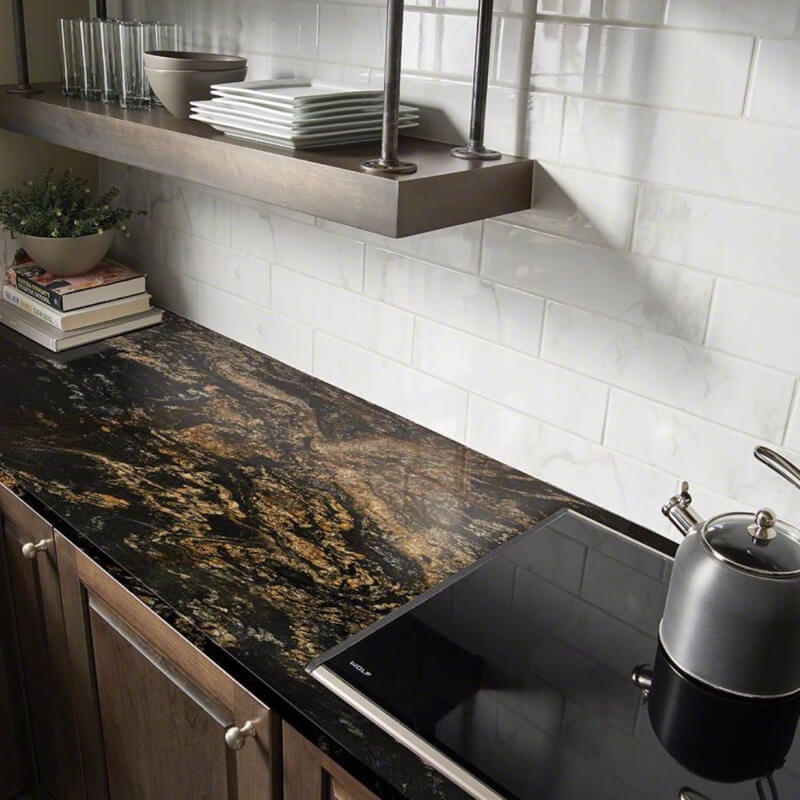Granite And Quartz Countertops Compared
June 17, 2017.jpg)
Quartz or granite? When it comes to a kitchen or bathroom renovation, it’s more complicated than tomayto-tomahto! You really can’t go wrong with either quartz or granite, but the two luxury countertop materials have different pros and cons.
Let us help you consider which is the best countertop for your design plans.
Beauty: Both surfaces are gorgeous. Each granite slab is unique, as found in nature and mined from quarries. Granite has grains and swirls and bright bits that create interest and movement. On the other hand, quartz slabs are uniform, manmade from a mixture of quartz and resin placed under high heat and pressure.
Beauty is in the eye of the beholder, so your choice depends on your style. Quartz allows you to get consistent clean white quartz countertops, while granite provides you with the uniqueness only nature can provide.
Durability: Both quartz and granite are rock hard and will last pretty much forever. However, granite is somewhat more brittle than quartz, making it more vulnerable to chipping, especially during installation.
Quartz laughs at stains and scratches, which can mar the beauty of natural stone like granite and marble. Still, quartz is more sun sensitive than granite, and can fade if installed outdoors.
Maintenance: Quartz wins this category. Unlike granite, quartz is non-porous and needs no sealing. In contrast, granite is porous and requires regular sealing to prevent it from absorbing grease and wine spills.
Both are easy to clean, and benefit from a quick swipe from a damp, soapy cloth. But granite is more sensitive, and can react badly to certain cleaners. For instance, never use vinegar to clean granite, because the mild acid can eat away at the countertop sealant.
 Featured: Hidden Treasure Granite
Featured: Hidden Treasure Granite
Versatility: If you hate seams, granite may be your best bet. Granite can come in slabs more than 70 inches wide, while quartz slabs typically are between 56 and 65 inches wide.
That means you’ll have to combine more than one piece of quartz for a wide counter, resulting in a seam. On the other hand, quartz comes in infinite colors and patterns, which gives it a design versatility that granite can’t easily match.
Resale Value: Granite is the clear winner when it comes to increasing the value of your home. Granite can boost home value by as much as 25% of the retail cost of the countertop, according to SFGate.
Also, granite counters have been around for a long time, and are viewed as a sign of luxury. In comparison, quartz is the new counter on the block, and home buyers are less familiar with its fine qualities. However, that’s quickly changing. In fact, quartz is currently the “it” countertop material for many in-the-know-buyers.
Cost: Neither is cheap, but entry-level granite countertops start at about $60 per square foot installed, while quartz starts at $67 per spare foot. However, exotic granites can top $200 per square foot, whereas quartz tops out at about $95 per square foot.
| Learn More about Granite vs. Quartz |
| Quartz vs. Granite for Countertops |
| The Dark Side: Black Quartz and Black Granite Countertops Compared |
| Granite or Quartz Countertops—Which Is Best for You? |
READ MORE ABOUT GRANITE COUNTERTOPS
Best Granite Color Options For Dark Cabinets
Cost-Benefit Analysis Of Prefabricated Granite Countertops
Easy Care And Maintenance For Granite Countertops
